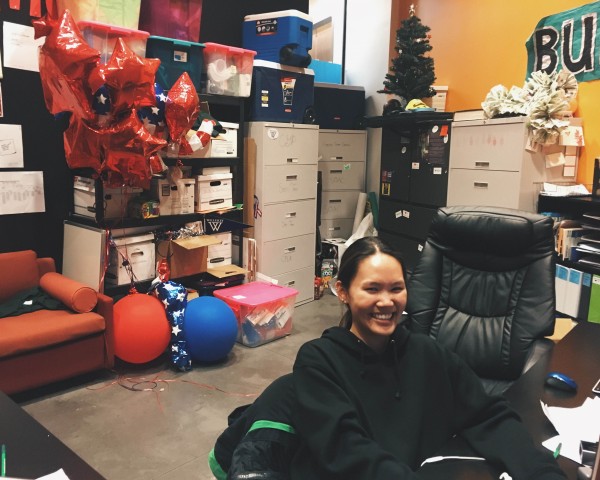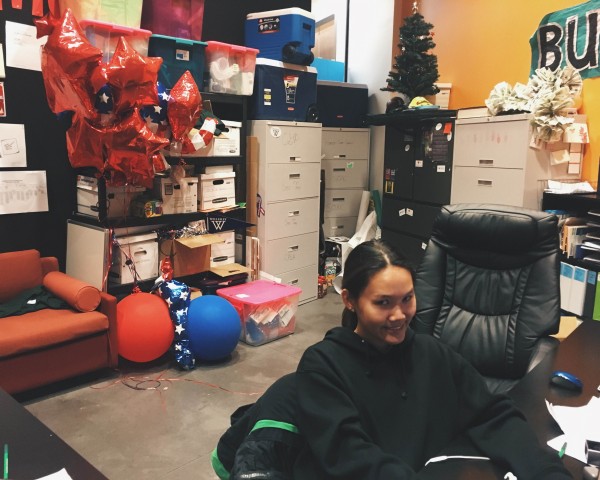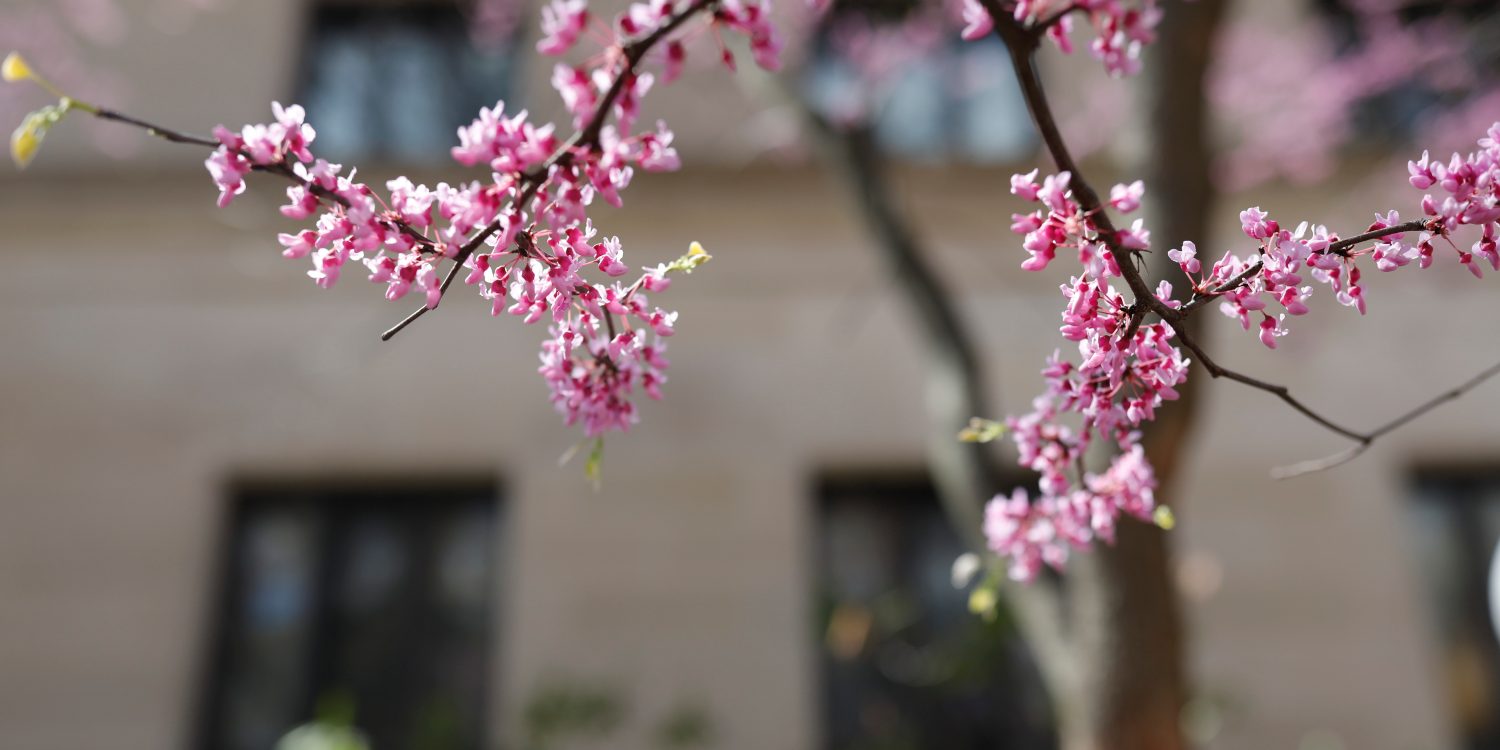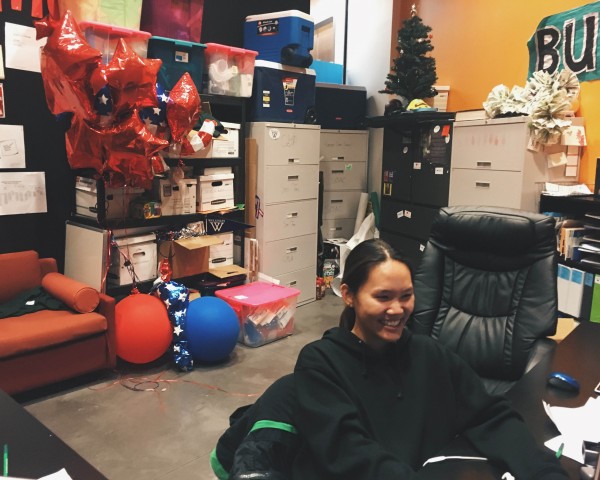When I first met René during pre-orientation for international students three and a half years ago, I felt an instant comfort knowing she and I had grown up pretty similarly. Our common experiences as “local” students at an international school in East Asia were inextricably linked to one another; we had mutual friends who went to each others’ schools or to summer programs at university and boarding school campuses in the U.S. together. We had both grown up used to being asked why our English was so great, and by now have heard the “so why did you come to America for college?” question many, many, many times. We also grew up within a bubble of educational and class privilege that shielded us and our peers from some of the harsh realities of a globalized world. Having come half way across the world and spent three and a half years at Wellesley College, we are both finally a few steps closer to being “better people.”
Where are you from?
René was born in Southern Taiwan. When she was six years old, her parents decided to send her to the U.S. to live with her aunt so that she could improve her English. In many Asian cities like Taipei and Tokyo (where I’m from), it is fairly common for kids to start learning English as a second language fairly early so that they have better odds of getting into private international schools. Before going to the Taipai American School, René lived in Buffalo, New York for about a year. She realizes now that her experience in Buffalo was “truly the immigrant experience,” which consisted of hanging out with the other Asian students, making fun of the other new kids who didn’t speak English, and quietly but surely mastering American language and culture. A decade later, René returned to America to start her adult life back in the East Coast.
Why did you come to Wellesley? Why did you stay?
During her junior year of high school, she came to the States with her family to tour colleges. René “went everywhere from Dartmouth to DC” – she had also checked out the UC’s, but her father who had gone to UCLA told her that a smaller university would probably be better for her as a student.
“The Wellesley campus was so gorgeous, and the girl who was giving us a tour of the campus was so composed. She told us that ‘one thing I love about Wellesley is that you stay up at night having these really deep conversations’ and I kept thinking ‘hmm…I wonder what that’s like,’ because I never had that in high school.” René decided to apply Early Decision, and by December of her senior year was all set to join the class of 2017.
She came to Wellesley looking for more than she had gotten in high school, but still unsure as to what that “more” was. For most of her life up to that point, she had gone to a school that gave her a “great education. I was a phenomenal student because of that place but I’m not a phenomenal person because of it.” René hoped that during her four years at Wellesley, she’d spend those “late nights in deep conversation” discovering more of her own strengths and interests; and her expectations were met. The incredible friends she has made may be spread out all over campus at this point, taking leadership roles in different organizations and taking different classes, but when René does see them it’s as easy as ever to catch up. I’m feeling pretty lucky to be able to consider myself one of those friends.
Have you found home, purpose, passions at Wellesley?
René is a member of the Political Society on campus called AGORA. “I met some of my best friends through AGORA…but I didn’t know what societies were, really, when I applied,” René recounts. But she went to the open houses and ‘tea-ed’ anyway and joined during the Spring semester of her first year. There are a few societies at Wellesley, all ranging in interests from politics to Shakespeare. This may be my own bias as a member of a different society coming through, but I personally want to believe that the reputation and goals of Wellesley societies have changed during the past four years. I was glad to hear the same thoughts coming from René as well; “when I got in, politics was kind of on the sidelines, I guess, even though we were a political society. But now we host better events, engage each other and the wider college community in conversations about politics. Within the society we have discussions about the Asian American experience in the United States, for example. We have people actively trying to make this group diverse,” not just in terms of political opinion but of race and class as well. The conscious efforts AGORA members have put into refocusing the group’s purpose and reprioritizing events and traditions have paid off; René sees the changes as improvements to the organization as a whole. She says that “people in AGORA are very passionate and know what they want. They are very politically driven and it’s really inspiring to be around people like that.”
Why have these changes happened in the past couple years? René isn’t sure what’s to blame. “Is it me that’s changing or is it society – not Wellesley societies you know, but like general society?” she laughed. As a fellow international student who has also felt this shift in attitude and focus on campus, I couldn’t say one way or the other. Perhaps René and I came to the U.S. just in time to witness and be part of some of its most pivotal social changes in recent history, and our personal evolutions are reflective of these shifts in our surroundings (in the past three years alone we’ve seen a change in presidential leadership both at Wellesley and in the federal government, and you can really feel the social shifts that accompany them).
During her Junior year, René joined College Government as the Vice President. “I hated student gov in high school,” the former CG-VP explained. “I really didn’t like having to stand up in front of my classmates and stuff.” But Wellesley gave her the perfect environment to test out her boundaries. An older student and lightning bolt of a personality, Charlotte Harris, recruited René during our sophomore year to run for the position the following semester. “I was so busy Junior year, but weirdly enough, I was the most organized. I never thought I’d do college gov, ever…and it was awful sometimes, honestly, but it was such a learning experience I’m so glad I did it,” René said, smiling her usual infectious smile.

What are some summer/winter session highlights? Did you go abroad?
René decided not to go abroad during her Junior year like many Wellesley students do. As the incoming VP of College Government and a big fan of Wellesley, she was determined to stay on campus and really get involved. “When I came to Wellesley my goal was to go abroad every summer, which I did,” so it made more sense to take full advantage of the resources and environment specific to Wellesley during the school year. During her first year summer, René went to Cape Town and worked as an intern. Her sophomore summer she traveled to London through an opportunity she found through the Center for Work and Services (now known as Career Education), and this past summer spent two months in Shanghai.
“I came out of each experience as a different person,” she told me when I asked her which city she enjoyed the most. “Cape Town was the most beautiful because I went hiking a lot while I was there and got to see some amazing views. I was also glad I went there having a bit of a Wellesley background because I realized the racial tensions and issues that come with a diverse city like that. If I had gone when I was a dumb high school kid* I wouldn’t have gotten any of that and not have been able to appreciate any of the details…especially for us, you know, we grew up in a very homogenous society, we never really realize the segregation that’s happening – even though it does happen everywhere. I was in a bubble.” And Wellesley, it so happens, helped poke small but significant holes in that bubble for both of us.
*I do not think it is capable for René Chan to be “dumb” and not all high school students are “dumb”, but you know what she means here.
What next?
René, unfortunately for me and for the rest of Wellesley, is graduating early and will be leaving us in a couple of weeks. Wellesley will be bidding adieu to an incredible student bursar, an insanely dedicated and sharp student, and a truly positive presence. While this truly breaks my heart, I am so excited for René to be able to relax and be away from academia for a bit before she starts working in the fall. She hopes to spend lots of time “traveling and chilling” with her family in the next several months, and maybe learn how to cook and even train to run a half marathon as well. Best of luck on all fronts, dude, especially the running part.
In other good news, René just took a job offer from a consulting firm based in LA! She hopes to spend the next few years learning how to make a difference and what that means actually means in the real world. “I don’t want to lose who I’ve become and what I’m aware of now at Wellesley.”
Advice?
Come with an open mind.
“When I first got to Wellesley, I was like ‘what’s feminism? What’s racial diversity? I don’t care, I’m not affected by that… but thank god I’m not like that anymore. I came in thinking I didn’t care about the issues Wellesley preached about and how that will affect me. And I think a lot of students that come into Wellesley do have that mindset – that high school mindset of thinking feminism isn’t cool or whatever – and some people never get out of that mindset either, which is such a waste.” But for René and for me, that change in mindset has been one of the most important changes we have undergone during our time here.
“If you’re going to get anything from Wellesley it’s a new sense of awareness,” not only of being able to identify the issues but also of wanting to do something about the problems in the world we live in.
I am just glad René’s path crossed with mine in that process.

Thank you, René, for your time and making me smile. I can’t wait to be those “annoying moms that makes their kids apply to Wellesley” with you in the future. In the meantime, go kick some corporate butt – I’ll see you on the other side!

